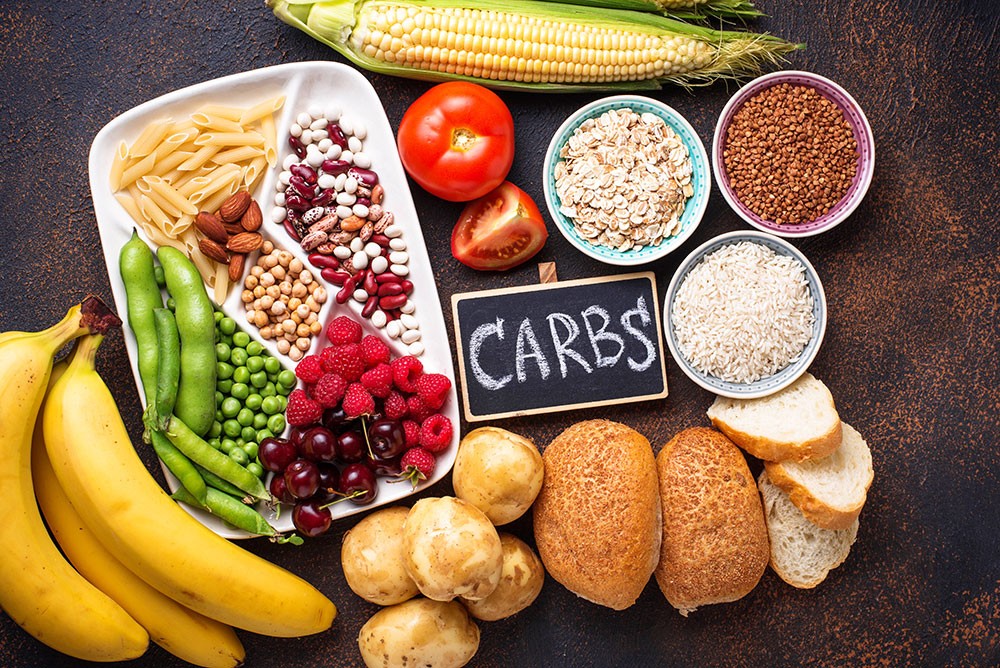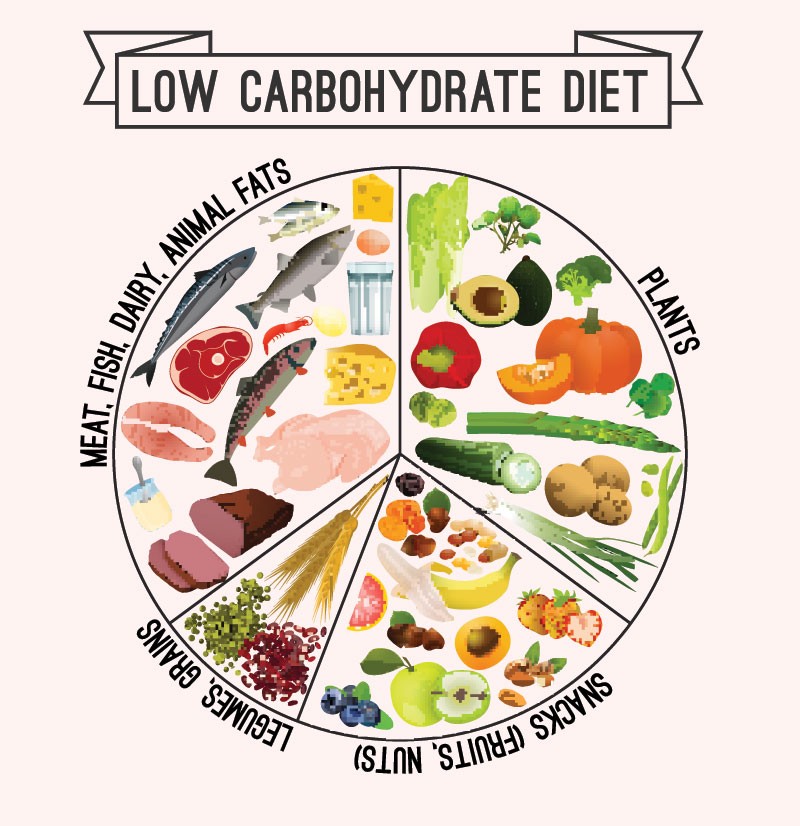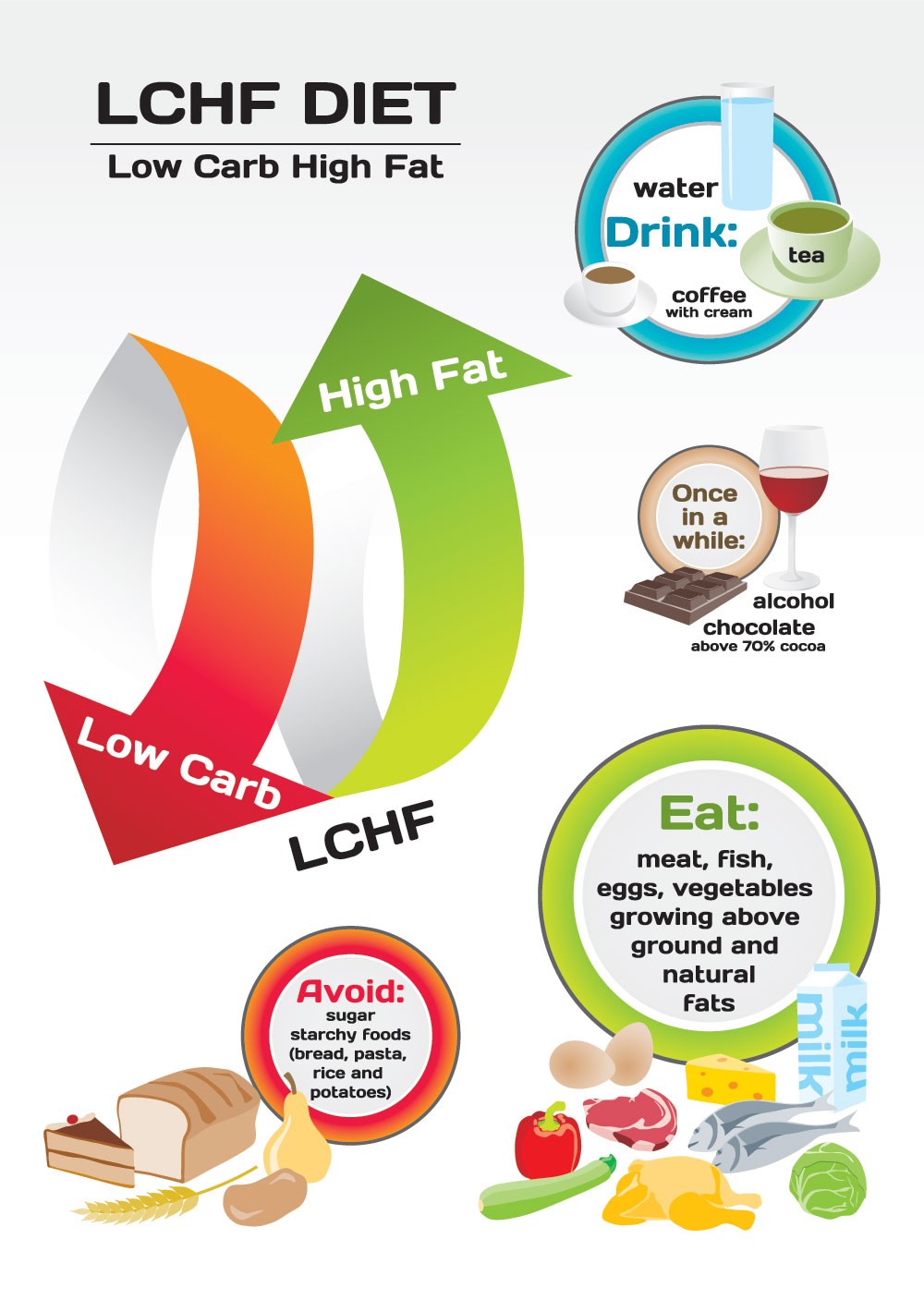Last updated on April 9th, 2022
Diabetes is a lifelong disease affecting many individuals worldwide. At present, over 400 million individuals are a victim of diabetes all across the globe. Even though it is a complex ailment, keeping a check on the blood sugar levels considerably lowers down the risk of associated complications. One of the ways to attain healthier blood glucose levels is to follow a high-fat low carb diet (ketogenic diet, in other terms). This article offers a complete overview of such diet patterns necessary for managing diabetes.
About two-thirds of the population is overweight, which is the highest risk factor for the incidence of type 2 diabetes. Modest weight loss together with certain lifestyle modifications can significantly help in delaying the progression of prediabetes to type 2 diabetes. Also, the combination helps in improving glycemic control in people with diabetes type 2. Dietary modification is the standard for the treatment of type 2 diabetes. And this should be accompanied by regular physical activity and for a majority, usage of anti-diabetic medicines. The American Diabetes Association (ADA) suggests the intake of individualized meal plans to concentrate upon nutrient-rich foods low in refined carbs as well as saturated fats. This article focuses upon what foods are good carbs for diabetics and on carbs that don’t raise blood sugar.
Many studies have found that a low carb high fat (LCHF) diet has yielded potential improvements in blood sugar control and weight loss, in addition concomitantly lowered the number and/or doses of anti-diabetic drugs. The LCHF diet is also seen to improve other parameters like bad cholesterol (HDL), triglycerides, and bad cholesterol (LDL). The ADA recently revised its lifestyle management guidelines, stating that a very low carbohydrate diet is a feasible approach for those with hyperglycemia who wish to reduce glucose-lowering medications. Thus, low carb and blood sugar levels go side by side.
Ready to find out more, let’s get started!

What is Low Carb High Fat (LCHF) Diet?
The ketogenic diet (high in fat and low in carbs) focuses on weight management. It also contains moderate amounts of protein. LCHF diet can potentially alter the way a person’s body stores and utilizes energy, mitigating the signs of diabetes. Low carbohydrates are the healthy carbohydrates for diabetics.
The diet involves myriad eating plans. The overall prominence is on whole, unprocessed foods including lean fish, nuts, seeds, eggs, grass-fed meat, and other low-carb produce. These can be given preference over heavily processed as well as pre-packaged foods like those with added sugars or starch.
This keto diet helps the body to convert fat, rather than sugar, into energy. The diet also helps to improve the levels of blood glucose while also lowering the insulin requirement. But, the LCHF diet comes with risks as well. So, it’s always a good idea to check with the concerned healthcare provider before including drastic dietary modifications.
The ketogenic diet is a hope of every person with type 2 diabetes facing lots of troubles in controlling their symptoms. With this diet, many people feel better as their symptoms get reduced. Also, their dependency on medications gets reduced with this diet. However, every person has not attained success with this diet. Few might find difficulty in following the restrictions over the long term.
A low carb high fat diet especially is proven beneficial for people struggling with other health conditions than diabetes also. These may include PCOS, acne, or Alzheimer’s disease.
Dieting may be risky for diabetes, thus the person must only begin with the ketogenic diet only if he or she is sure about the commitment towards it. Here, a dietician and a healthcare provider play a vital role in determining the best diet choice for the person.

What is “High Fat” in LCHF (Low Carb High Fat) diet?
A lot of diabetics are obese, so a high-fat diet may appear unhelpful. The objective of this LCHF diet is to make the body utilize fat for energy rather than glucose or carbs. A keto diet provides most of the energy from fat, with slight amounts from carbs.
Having this diet doesn’t indicate the person should get loaded up with saturated fats. Consuming heart-healthy fats is the key to maintaining overall health. Some of the healthy foods commonly included in the LCHF diet include fish such as salmon, avocado, eggs, nuts, seeds, cottage cheese, olives, and olive oil.
Also Read: Madhunashini Vati For Diabetes
Is LCHF Diet Good For Diabetics?
The high fat-low carb diet, owing to its low necessity for insulin, is very much appropriate for individuals with diabetes type 2. In addition, the diet is also useful for people who are looking to lose weight or maintain a healthy weight.
Impact of High-fat Low Carb Diet for Diabetes
This type of diet has the potential to reduce blood sugar levels. Managing carbohydrate consumption is often suggested for individuals experiencing type 2 diabetes as the carbs get converted to sugar and, in huge amounts, might bring about raised blood sugars. Thus, determination of the carb counts is a must and this can be done with the help of a concerned doctor.
If the person already has high blood sugar levels, intake of excess carbs can turn out to be a danger. Thus, people experience good diabetic control by switching the focus to fat.
Also Read: Homeopathic Medicine For Diabetes
The Keto Diet (High-fat Low Carb Diet For Diabetes)
Read more to know about the good carbs and bad carbs for diabetics:
Foods to Eat
- Meat
- Eggs
- Dairy: natural yogurt, butter, cheese, or cream
- Fish
- Leafy greens and non-starchy veggies
- Olive oil or canola oil (organically grown and cold-pressed)
Food to Eat (in moderate amounts)
- Beans and lentils
- Nuts and seeds (almonds, flax, chia, and sunflower seeds)
- Fruits (not including dried fruits)
- Chocolate with a high amount of cocoa (65-90%)
- Alcohol in limits; remember that it is fattening and may give rise to significant imbalanced blood glucose.
Foods to Avoid
- Starchy foods like rice, potato, white bread, and corn-based products
- Desserts, baked items like cakes, candies, ice creams
- Omega-6 based oils like soybean, corn, sunflower, peanut, and safflower oil
- Cereal-based products like pasta, biscuits, pastry, or breakfast cereals.
- Dried fruit
- Portions of Margarine
- Sugary drinks
Also Read: Ketogenic Diet Meal Plan for Diabetes
Potential Dangers Linked to LCHF Diet
Increased levels of ketones in the blood are seen when the body’s primary energy source gets altered from carbs to fats. This “dietary ketosis” is very much dissimilar from ketoacidosis, which is an exceptionally risky state.
An excess of ketones in the blood causes diabetic ketoacidosis (DKA). DKA is more common in diabetes type 1 where the blood sugar is too high and the condition may emerge from a deficiency of insulin.
Even though rare, DKA can occur in type 2 diabetes as well in the presence of an excess of ketones. When a person feels sick while on a low-carb diet, may also get this condition.
If the person is having a low carb-high fat diet, then he or she must test blood sugar levels all through the day. This ensures a regular tracking of the sugar levels within their target range. The ADA suggests ketones testing if any person’s blood glucose is higher than 240 mg/dL. It can be done at home with urine strips.
Diabetic ketoacidosis is a kind of medical emergency. If any person experiences the symptoms of DKA, it’s advisable to see a doctor without any delay. Complications may give rise to diabetic coma.
The symptoms of DKA can be:
- Nausea
- Dry mouth
- Frequent urination
- Consistently high blood sugar
- Breathing problems
- Fruity smelling breath
The high-fat low carb diet for diabetes characteristically lessens the total carb consumption to below 50 grams up to 20 grams a day. Usually, popular ketogenic resources propose an average consumption of 70 to 80% fats from total daily calories, about 10 to 20% proteins, as well as 5 to 10% carbs. In this type of diet, protein amount is kept moderate as compared to other low-carb high-protein diets. This is because eating proteins in excess can help prevent ketosis.
Summary
The LCHF diet appears clear-cut. Unlike a classic low-calorie diet, still, a high-fat diet demands careful monitoring. Close monitoring of both blood glucose and ketone levels is required to ensure that the LCHF diet is not leading to any negative effects. Low carbs are the best carbohydrates for diabetics.
Research on Low Carb High Fat Diet and Diabetes
- In 2008, a 24-week study was conducted to establish the effects of a low-carbohydrate diet on type 2 diabetic and overweight participants. An improved glycemic control was noticed in participants who followed this diet in comparison to those who followed a low-glycemic diet.
- It was also seen in a 2013 study that a ketogenic diet delivers more significant improvements in A1c levels, blood sugar control, weight loss, as well as withdrawn insulin requirements as compared to other diets.
- In 2017 also, a study was carried out to confirm that the ketogenic diet is just great for weight loss and managing A1c levels.
Summary
Is a low-carb diet for type 1 diabetes? Low carb and high-fat diet is an effective tool aimed at managing type 1 and type 2 diabetes. Such a type of diet greatly improves A1c levels, reduces the medication needs, lowers down the risk of diabetic complications. It’s very vital to discuss with your doctor before including this diet in your daily routine, as your medicine dosages may require an adjustment.
Also Read: Blood sugar conversion chart
FAQs:
What can occur if I don’t consume enough fat on the LCHF diet?
When you don’t consume the required fats, you will feel hungrier. And when you get those hunger pangs, you are more expected to eat any available food. The more is your snacking, the more calories go into your systems, and you could wind up consuming more than your body demands.
Can I eat carrots as a part of the LCHF diet?
Raw carrots are composed of about 9 grams of net carbs per cup (122 grams). Even though they’re not as high in starch as others, they rank among the highest carb veggies than many non-starchy veggies. Thus, it is not a good idea to include them in the LCHF diet.
Is there any effect of doing exercise in ketosis?
If you stay more active, you can get into ketosis. While exercising, you drain your body’s stored glycogen. Glycogen gets replenished when you consume carbs, which are broken down into glucose. The unwanted glucose gets stored as glycogen.
What is the lowest carb fruit?
Watermelon can be classified as a low-carb fruit as it is 92% water, with 7.5 carbs for every 100 grams. In addition, it is packed with vitamins A and C.
Are 100 carbs a day counted under low carb?
There is no strict classification of a low-carb diet, anything below 100 to 150 grams per day is usually through-out as a low-carb diet. Significant results can be seen within this carb range, provided that you consume unprocessed and real foods.
If I am regularly taking a low-carb high-fat diet, how much weight can I lose?
Commonly people lose a lot of water weight in the initial days on a low carbohydrate diet. Some studies recommend you may lose up to 5 to 10 pounds (2.5 to 4.5 kg) this way. Weight loss would reduce after the first week, but your fat mass may carry on reducing if a proper diet is maintained.
Is a low-carb diet good for type 2 diabetes?
Research studies positively support the use of low carbohydrate foods for diabetics. Such a diet appears to work well in the long term when individuals follow them strictly.
References:
- https://www.diabetes.co.uk/diet/low-carb-high-fat-diet.html
- https://www.healthline.com/health/type-2-diabetes-ketogenic-diet
- https://www.healthline.com/nutrition/low-carb-diet-for-diabetes#Which-carbs-raise-blood-sugar-levels?
- https://www.ncbi.nlm.nih.gov/pmc/articles/PMC7103851/
- https://www.hsph.harvard.edu/nutritionsource/healthy-weight/diet-reviews/ketogenic-diet/
Last Updated on by Dr. Damanjit Duggal
Disclaimer
This site provides educational content; however, it is not a substitute for professional medical guidance. Readers should consult their healthcare professional for personalised guidance. We work hard to provide accurate and helpful information. Your well-being is important to us, and we value your feedback. To learn more, visit our editorial policy page for details on our content guidelines and the content creation process.

 English
English














